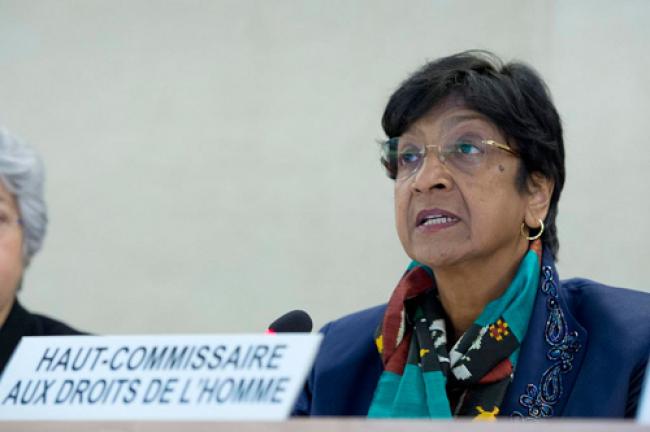“I am deeply shocked by the death of Farzana Parveen, who, as in the case of so many other women in Pakistan, was brutally murdered by members of her own family simply because she married a man of her own choice,” said High Commissioner for Human Rights Navi Pillay.
“I do not even wish to use the phrase ‘honour killing’: there is not the faintest vestige of honour in killing a woman in this way,” she added in a news release, which also noted that Pakistan has one of the highest rates of violence against women globally.
According to reports, some 20 members of Parveen’s family, including her father and two brothers, attacked her and her husband when they were on their way to the Lahore High Court, where they were due to contest her father’s allegations that she had been kidnapped by her husband and that their marriage was invalid.
“Every year, hundreds of women are killed in Pakistan as a punishment for marrying a man their families have not chosen or for refusing an arranged marriage,” Pillay said.
According to the Human Rights Commission of Pakistan, 869 women were murdered in so-called ‘honour killings’ in the country last year, but the real figure could be much higher, with many such killings believed to be disguised as accidents, or not reported at all.
“The Pakistani Government must take urgent and strong measures to put an end to the continuous stream of so-called ‘honourkillings’ and other forms of violence against women,” said Pillay.
“They must also make a much greater effort to protect women like Farzana Parveen. The fact that she was killed on her way to court, shows a serious failure by the State to provide security for someone who – given how common such killings are in Pakistan – was obviously at risk.”
The UN General Assembly, in three separate resolutions in 2001, 2003 and 2005, called on Member States to intensify legislative, educational, social and other efforts to prevent and eliminate “honour”-based crimes and to bring the perpetrators to justice.
High Commissioner for Human Rights Navi Pillay. UN Photo/Jean-Marc Ferré
